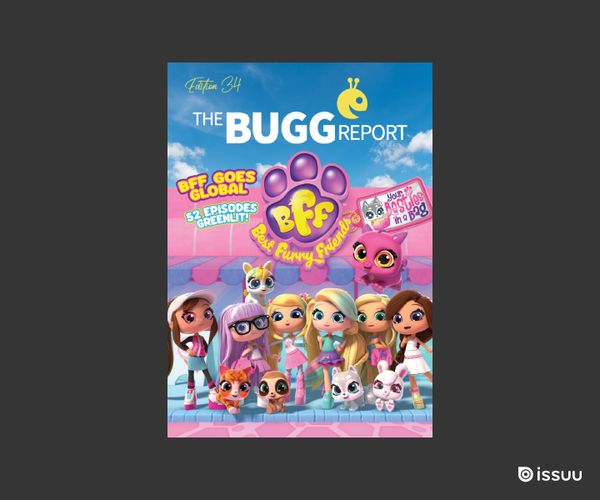Wide Eyes News from the Tube is written by a leading industry expert and is focused on providing a quick snapshot of the best opportunities in the television & animation market.
FAANG (US) — Facebook, Amazon, Apple, Netflix & Google in the blue corner and BAT (China) — Baidu, Alibaba & Tencent in the red corner is turning into the battle of the super-giant technology companies providing social media and entertainment services across the internet.
There is one huge distinction between the two groups: the American FAANG giants are dominant around the world, excluding China where they are mostly banned and the Chinese BAT giants who are successful in their Chinese home market and to-date have had little presence outside of China. But that is starting to change as witnessed by the incredible popularity of Chinese social media music app TikTok and the Western world’s growing concern of TikTok’s and Huawei’s presence in their countries.
Since the launch of Myspace in 2003, followed by Facebook in 2006, US technology companies have dominated the social media and entertainment space on the internet to the exclusion of other non-US technology companies. China remains the exception because the Chinese government blocked all foreign media from entering and operating in China, meaning all non-Chinese internet services are unavailable including Facebook, Google, YouTube, Vimeo, Spotify, Amazon Prime, Apple TV+, Bing, Hulu, Instagram, Twitter, Flickr, Pinterest, Snapchat, Tumbler, Vimeo, WhatsApp, Wikipedia and Yahoo (Netflix is not actually banned from China but as it has no local content nor Chinese distribution rights to offer it is non-existent in the Chinese market). This vacuum of social media and online entertainment services in China has led to the emergence of local Chinese technology companies filling the gap in the world’s second largest economy.
Three technology companies — Baidu, Alibaba and Tencent, dominate the digital and social categories in China and are starting to rub up against FAANG in international markets. There are also new entrants into the Chinese market including Weibo and ByteDance.
Baidu is China’s equivalent to the global search engine Google and it has a 70% share of search and the related advertising business in the Chinese market. Baidu also owns iQiyi which is China’s leading video streaming service and is comparable to the video subscription on demand service Netflix. Both Baidu and iQiyi are available outside of China and provide the global Chinese population with Chinese language search and video streaming services.
Alibaba is the nearest thing in China to the world’s largest online retail platform Amazon. Alibaba controls 70% of China’s e-commerce market and is available internationally. Like Amazon, Alibaba also has its own cloud computing division Alibaba Cloud and echoing Amazon’s Prime Video service, the company is also third in size in China’s video content streaming business via its Youku platform after Baidu’s iQiyi and Tencent Video services.
Tencent is one of the world’s leading gaming firms with investments in Riot Games (League of Legends), Epic Games (Fortnite), Kingsoft (JX) and Activision Blizzard (Call of Duty). In addition, Tencent Video is the biggest rival to iQiyi in China’s video streaming business and Tencent has stakes in both search engine Sogou and social media company Snapchat and owns China’s number one social messaging service WeChat. Tencent also owns the leading Chinese music streaming service QQ which is a joint venture with Spotify.
Weibo is a social media platform often referred to as being China’s answer to both Facebook and Twitter. Weibo is the second most popular social media platform in China after WeChat with its user base nearing 500 million users. With Weibo, users can upload videos, images, and gifs, they can follow an individual and read their posts, then like and share them, without being followed back. Like Twitter, Weibo is often the platform most often used for discussing breaking news & cultural events in China.
ByteDance is the Chinese internet technology company that created TikTok, the global music and video social media app released in China in September 2016 named Douyin. TikTok describes itself as a Global Video Community with users sharing and creating videos on nearly any topic you can imagine. The app includes a wide array of tools, filters and music to make user-created videos appear incredibly professional, encouraging users to create content themselves and further engage with the platform. In 2018 TikTok was the most downloaded app on both Google Play and in the Apple App Store placing it above even Facebook and Instagram.
All of the Chinese technology companies highlighted above are able to do business across all countries of the world, whereas non-Chinese media service companies are banned for doing business in China.
It will be very interesting to watch as the Chinese tech companies continue their push into international markets and they increasingly start to bump into their US rivals, which we are beginning to witness with the problems being experienced by Tiktok and Huawei in many Western countries.
This article was originally featured in our October 2020 magazine











